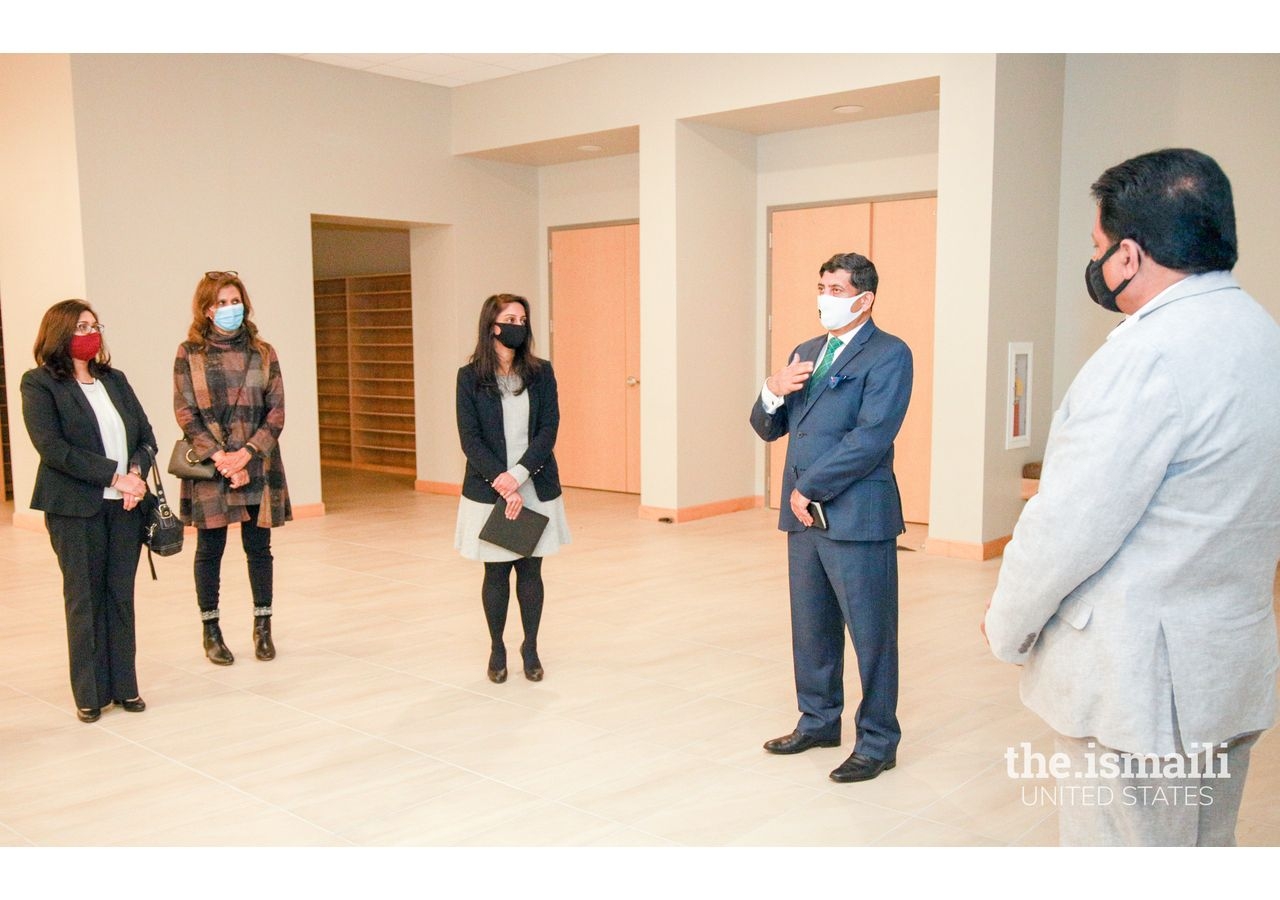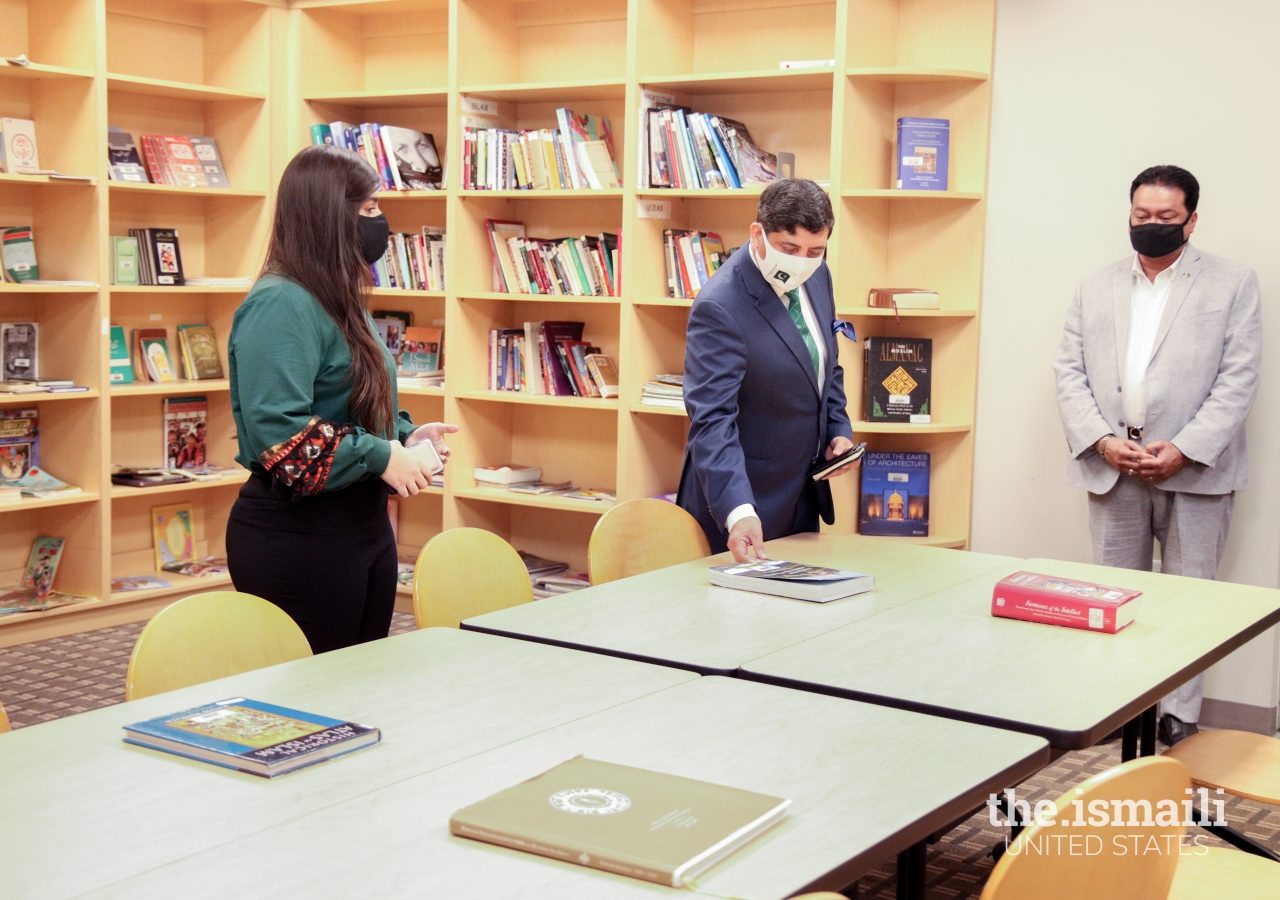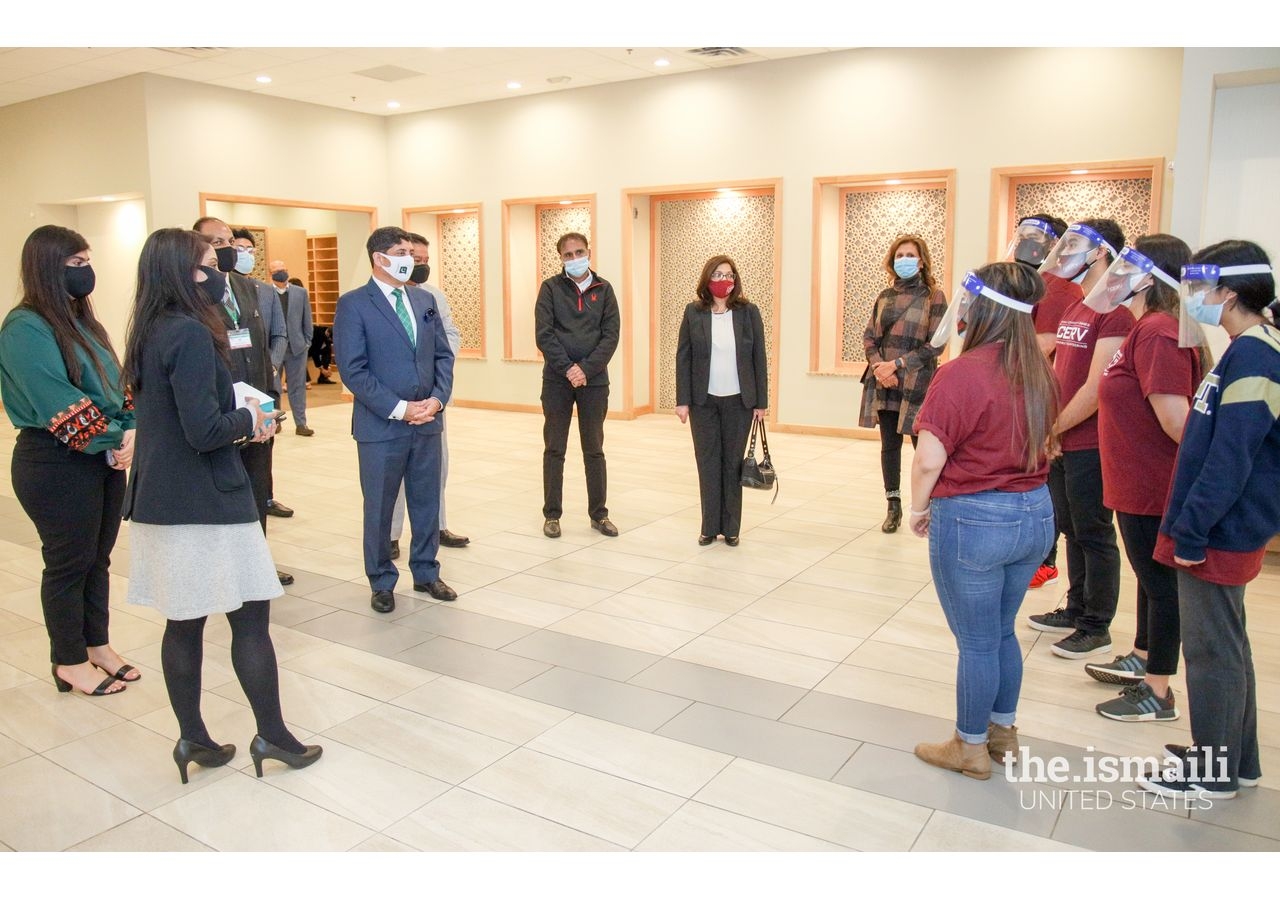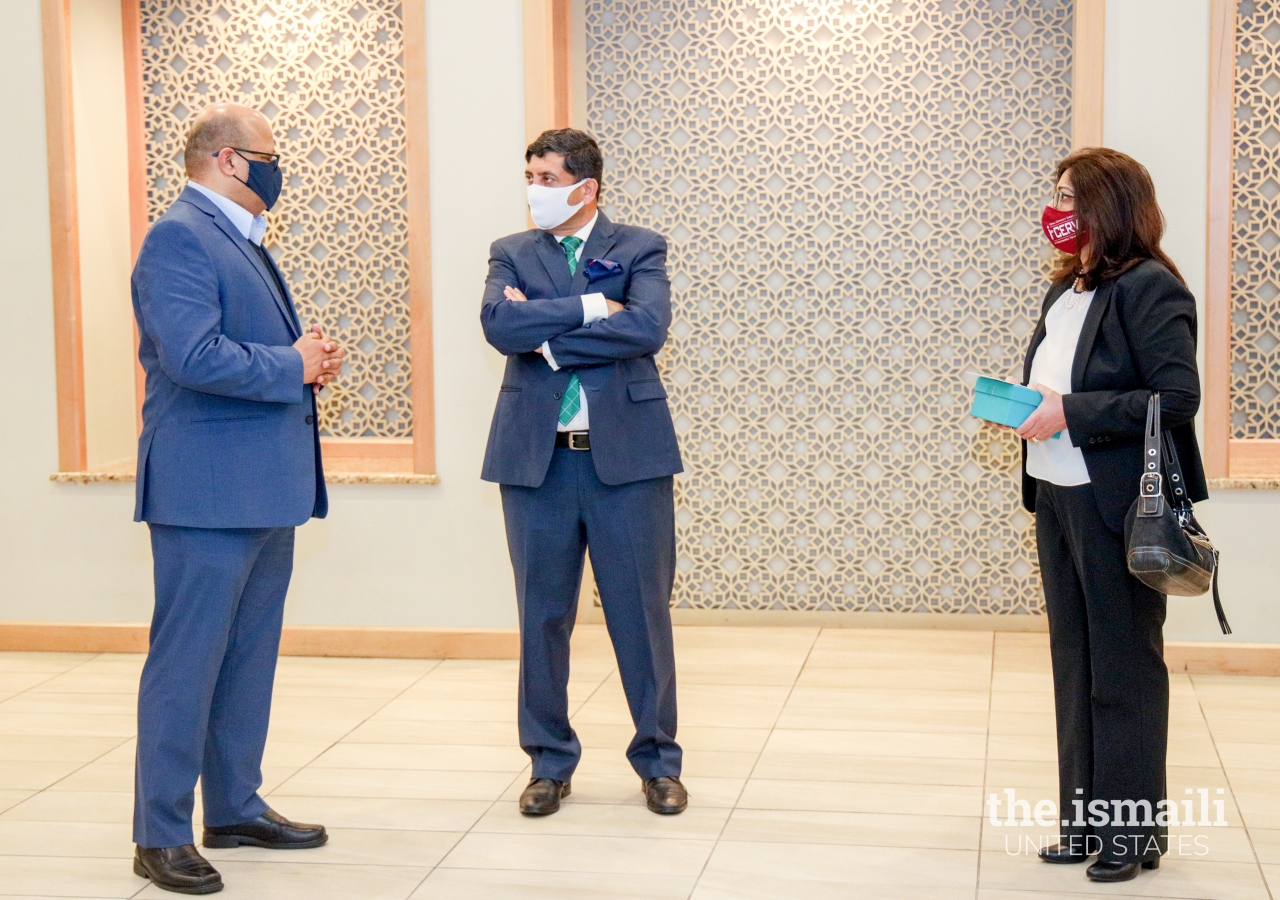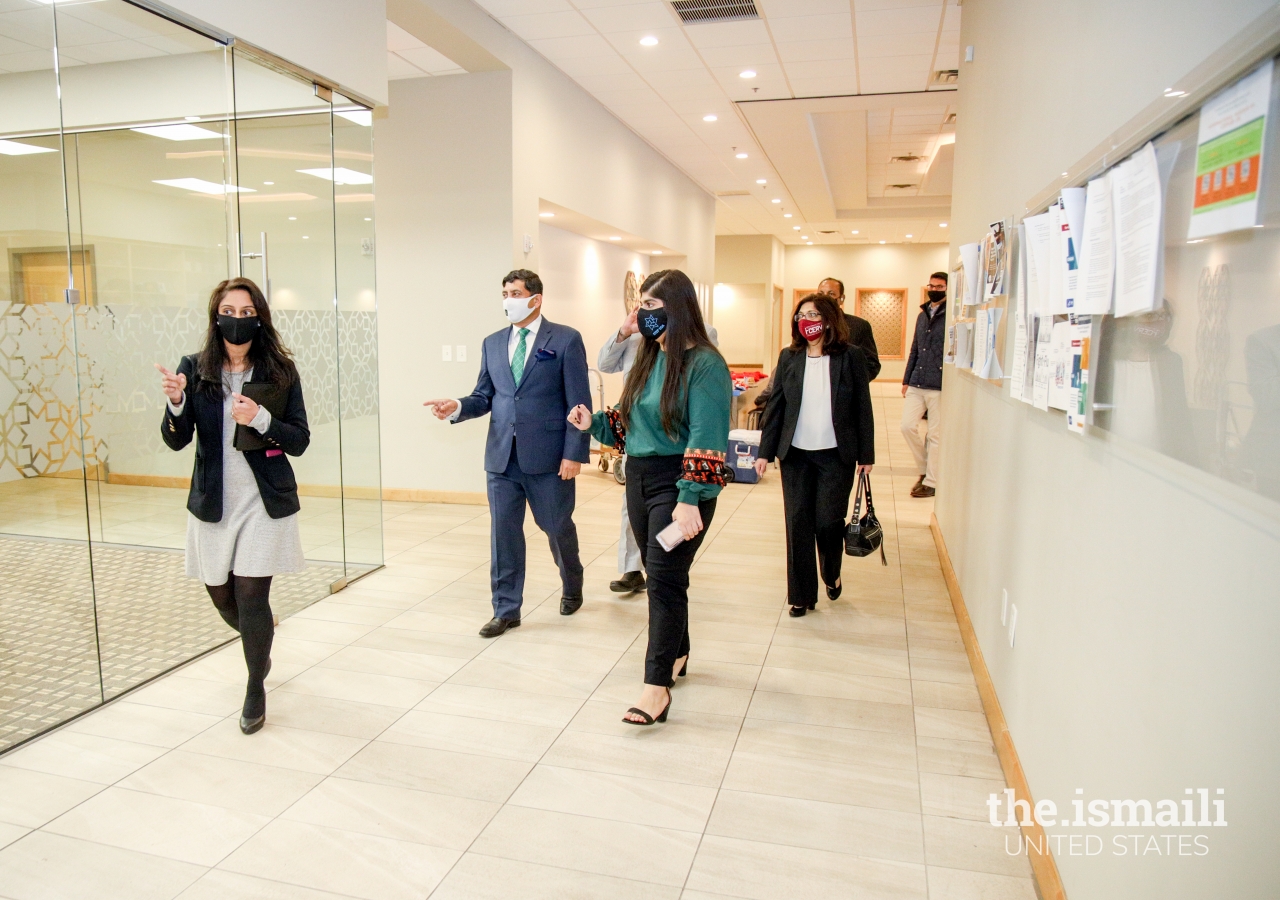This visit to the Jamatkhana was a part of a broader visit to the Southeast region, during which Mr. Hashmi met the civic, political, community, and business leaders with ties to Pakistan. He also met faith-based community members in an effort to promote “harmony, inclusivity, and pluralism” among the Pakistani community in the United States.
A topic of discussion during the visit was the collaboration between the government of Pakistan and the Aga Khan Development Network (AKDN). Mr. Hashmi mentioned the critical role that the network is playing in enhancing the quality of life of Pakistanis. He gave the example of the Aga Khan Rural Support Programme in improving the living standards of Pakistanis through interventions related to economic development, especially in Gilgit-Baltistan and Chitral.
In 2020, Pakistan received the World Habitat Awards at the gold level for the Aga Khan Agency for Habitat’s “Integrating Indigenous Knowledge and Technology for Safer Habitat” project. This award-winning project combines science, technology and local knowledge for disaster risk management and sustainable habitat planning and development.
0682
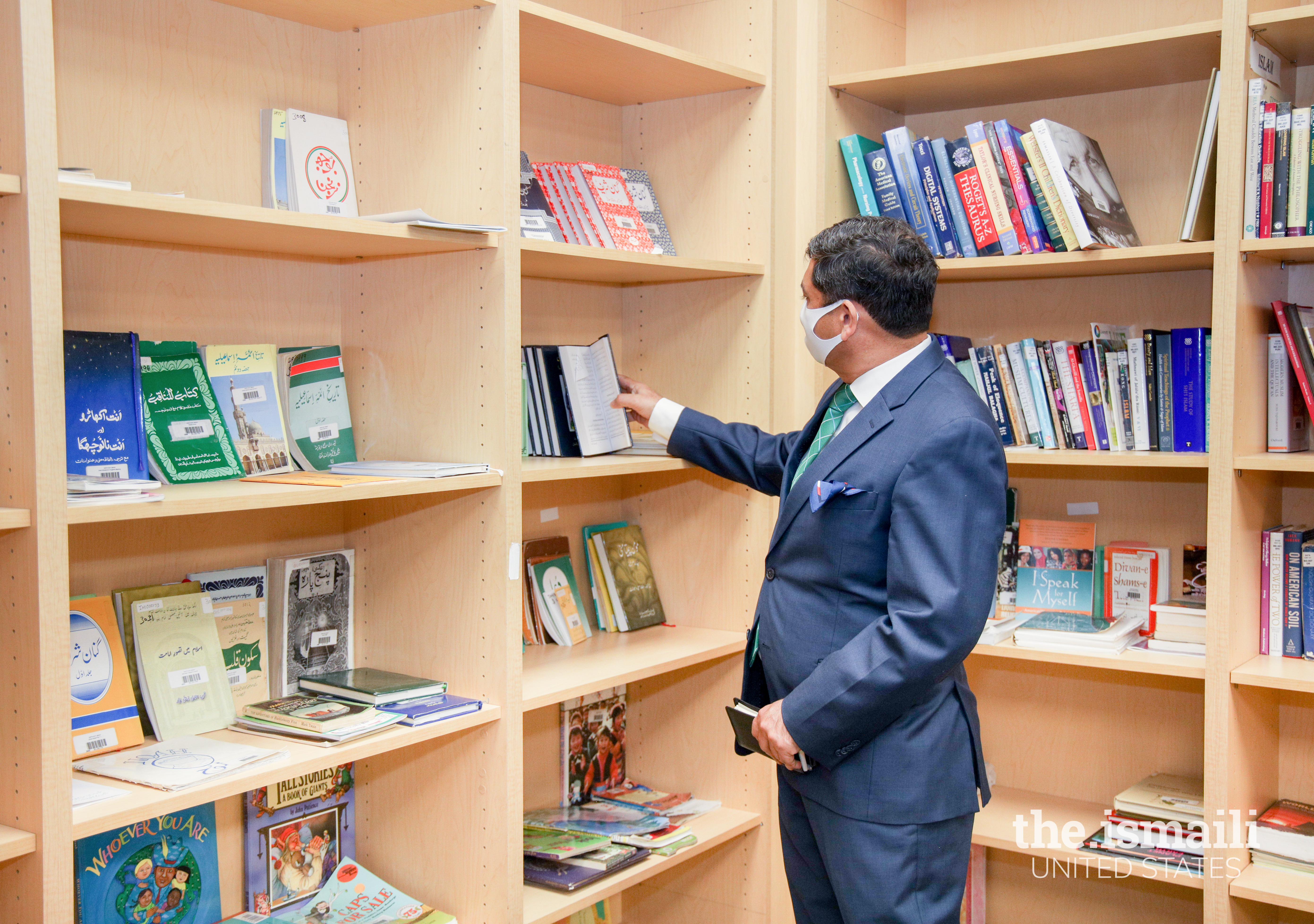
Mr. Hashmi also discussed the impact of the Aga Khan Education Services, and its role in educating close to 45,000 students in Pakistan each year, from pre-primary through university. He said, “The work of AKDN is monumental, and I have seen individuals coming out of poverty and excelling.”
AKDN’s rehabilitation of key Muslim architectural and heritage sites in Pakistan, including the revitalization of the Walled City of Lahore, and the Baltit and Altit Forts in Hunza through the Aga Khan Historic Cities Programme, was another point of discussion. Mr. Hashmi said, “These sites were in a dire state, but could not be taken care of by the government...AKDN has done a wonderful job by moving into those spaces and ‘owning’ them and building on this shared heritage.”
540
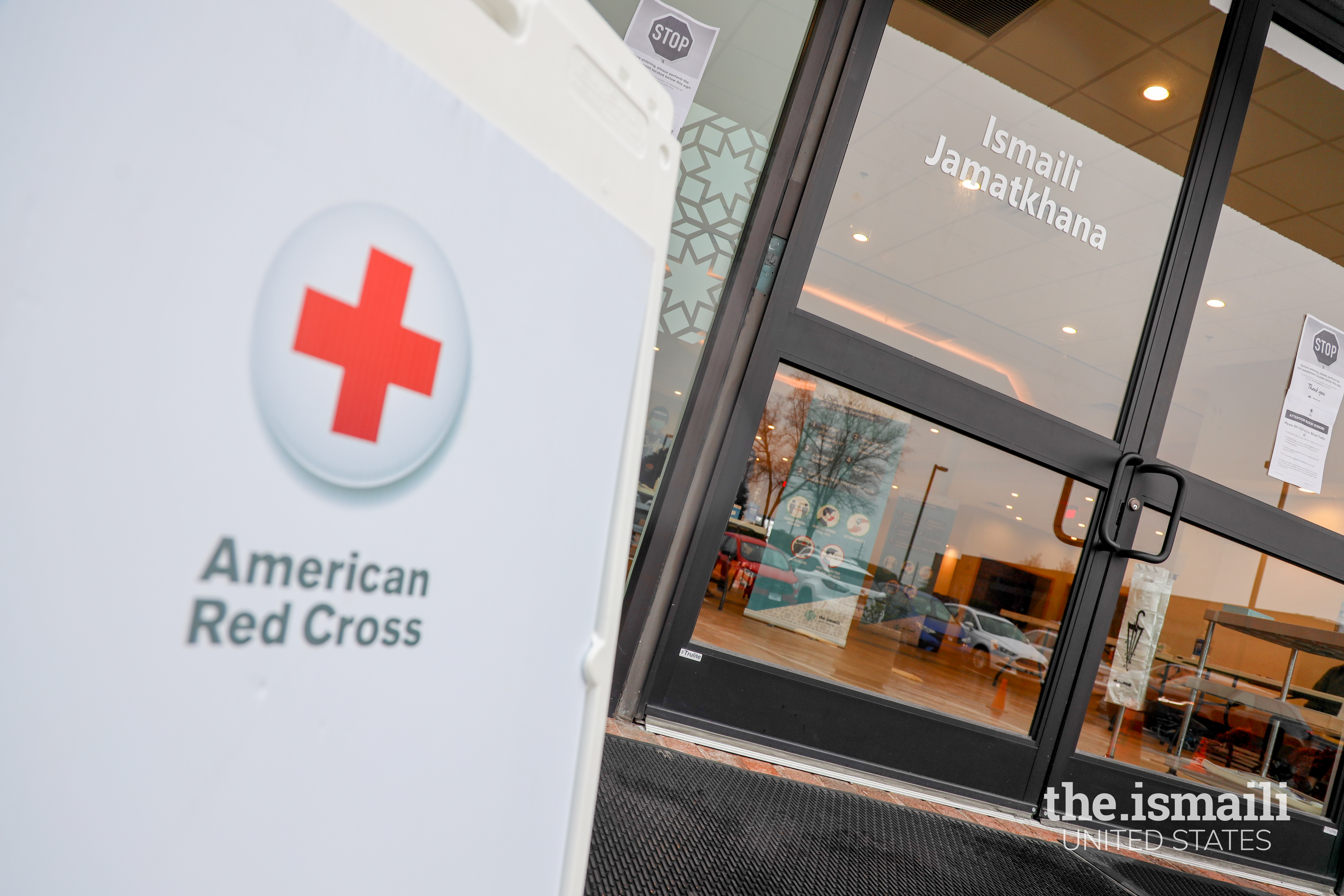
Mr. Hashmi underscored the need for such partnerships between governments and civic/development organizations to support democracies around the globe. He said, “Democracy is not complete unless you have strong civil society institutions.” He referred to “illiterate democracies,” where civil societies have not challenged existing political systems. He said, “Strong civic institutions bring in the core concerns, filling the gaps where governments are not able to do enough, for example, social development and education, and unless they do these things to improve quality of life, governance is not complete... AKDN fills those gaps. It has a big say in supporting and developing democracy and it helps bring voices to the table.”
The Ismaili Jamatkhana Atlanta was also the site of a blood drive at the time of
Mr. Hashmi’s visit. I-CERV (Ismaili Community Engaged in Responsible Volunteering) members who had organized this blood drive in collaboration with the American Red Cross had the opportunity to meet Mr. Hashmi. They discussed the need for such blood drives to support the local community, especially given the increased demand for blood, but the sharp decline in blood donations during the COVID-19 pandemic.

